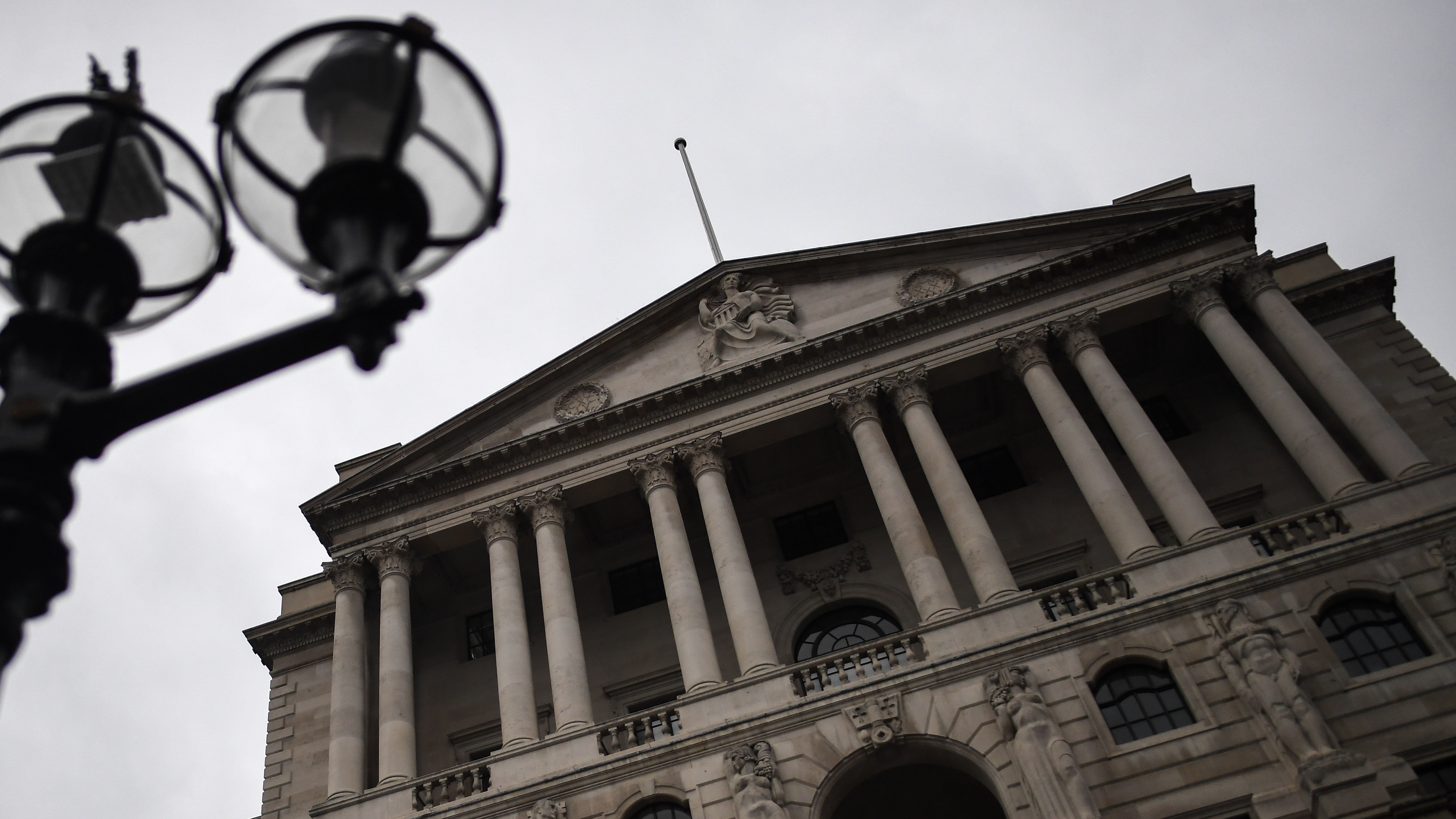Is now the time to raid your pension savings?
Although the Lifetime Allowance is set to be scrapped there are fears pension savers could be hit in future

A free daily email with the biggest news stories of the day – and the best features from TheWeek.com
You are now subscribed
Your newsletter sign-up was successful
Pension savers are facing a new dilemma ahead of this year's general election which could dictate how much they withdraw from their retirement savings.
The lifetime allowance will be scrapped from the new tax year on 6 April, removing any limits on how much you can save into a pension.
But Labour has pledged to reintroduce the allowance if it forms the next government, warned Moira O'Neill in the Financial Times, so wealthier savers are facing the question of how to ensure "excess funds" above the threshold are safe.
The Week
Escape your echo chamber. Get the facts behind the news, plus analysis from multiple perspectives.

Sign up for The Week's Free Newsletters
From our morning news briefing to a weekly Good News Newsletter, get the best of The Week delivered directly to your inbox.
From our morning news briefing to a weekly Good News Newsletter, get the best of The Week delivered directly to your inbox.
Some advisers are suggesting clients "crystallise" or withdraw excess funds now, said O'Neill, to "protect against a future tax charge".
But it is important to plan how you access your fund and how you withdraw your retirement income, said MoneyHelper, to avoid the "risk of running out of money" in retirement.
How pension crystallisation works
Crystallising your pension essentially means accessing your pension savings.
A pension is "uncrystallised" while you are saving into it, explained the Daily Telegraph, "and for however long after you retire that you leave the pot untouched".
A free daily email with the biggest news stories of the day – and the best features from TheWeek.com
In contrast, "crystallising" your pension is the process of accessing your retirement savings from age 55, said PensionBee, "so any part of your pension pot that you can withdraw and spend has been crystallised".
This can be done through drawdown or by purchasing an annuity.
One of the main "benefits of crystallising" a pension, added the platform, is being able to withdraw up to 25% tax-free with further withdrawals charged at your marginal rate.
How the lifetime allowance is changing
The lifetime allowance was introduced in 2006 and set a maximum amount on how much could be saved into a pension.
The allowance has "long been controversial", said MoneyWeek, penalising workers that "diligently save money for retirement and/or make good investment decisions", and also hitting high earners such as doctors.
Chancellor Jeremy Hunt "surprised almost everyone", said LoveMoney, in his March 2023 Spring Budget by first withdrawing the tax penalty for exceeding the £1,073,000 limit and then stating that it would be abolished from the new tax year in April 2024.
But what will happen if Labour wins the upcoming general election, added the financial website, "and carries out its pledge to reinstate the lifetime allowance".
Is now the time to crystallise your pension?
The prospect of a temporary lifetime allowance removal may prompt individuals with substantial funds to crystallise now, said FTAdviser, "rather than risking uncertainty about future developments".
However, making decisions on "speculation", may not lead to the best outcomes, added the financial website.
It is "impossible to predict" what Labour may or may not do should the party win the general election, said O'Neill. It may even find the task of reversing the legislation "too difficult" after it has taken "more than 100 pages of legislative change to remove it".
There are also other risks to accessing too much of your pension too soon.
Entering drawdown too early or taking too much creates a risk that you "spend your retirement savings too quickly", added the Daily Telegraph. In contrast, an annuity gives you a fixed income for life but it can't be varied and is gone once you die, added the newspaper.
So, careful financial planning will be needed to make the right decision, whoever is in power.
Marc Shoffman is an NCTJ-qualified award-winning freelance journalist, specialising in business, property and personal finance. He has a BA in multimedia journalism from Bournemouth University and a master’s in financial journalism from City University, London. His career began at FT Business trade publication Financial Adviser, during the 2008 banking crash. In 2013, he moved to MailOnline’s personal finance section This is Money, where he covered topics ranging from mortgages and pensions to investments and even a bit of Bitcoin. Since going freelance in 2016, his work has appeared in MoneyWeek, The Times, The Mail on Sunday and on the i news site.
-
 Nepal’s fake mountain rescue fraud
Nepal’s fake mountain rescue fraudUnder The Radar Arrests made in alleged $20 million insurance racket
-
 History-making moments of Super Bowl halftime shows past
History-making moments of Super Bowl halftime shows pastin depth From Prince to Gloria Estefan, the shows have been filled with memorable events
-
 The Washington Post is reshaping its newsroom by laying off hundreds
The Washington Post is reshaping its newsroom by laying off hundredsIn the Spotlight More than 300 journalists were reportedly let go
-
 Six ways to boost your finances in 2026
Six ways to boost your finances in 2026The Explainer It’s not too late to make a new year’s resolution to finally get organised money-wise
-
 The financial impact of returning to work in later life – should you 'unretire'?
The financial impact of returning to work in later life – should you 'unretire'?The Explainer Many people return to the workplace after retirement age, but what could it mean for your finances?
-
 State pension underpayments: are you getting the right amount?
State pension underpayments: are you getting the right amount?feature Hundreds of thousands of women may have received less than they were owed
-
 Early retirement: what is the ‘FIRE’ movement?
Early retirement: what is the ‘FIRE’ movement?feature Younger workers are aiming to quit the workforce early through extreme saving and investment
-
 How women can bridge the gender pension gap
How women can bridge the gender pension gapIn Depth New figures have shown the extent of the problem for women in retirement years
-
 How to plug the pension gap by buying National Insurance credits
How to plug the pension gap by buying National Insurance creditsfeature A temporary change in the state pension offers a ‘golden opportunity’
-
 Are UK pensions safe?
Are UK pensions safe?Today's Big Question Bank of England governor says its debt market support must end – but the multi-billion-pound scheme could be extended
-
 Pensions: time to end the triple lock?
Pensions: time to end the triple lock?In the Spotlight Ministers must decide whether to risk alienating older voters by ending guaranteed pension rises